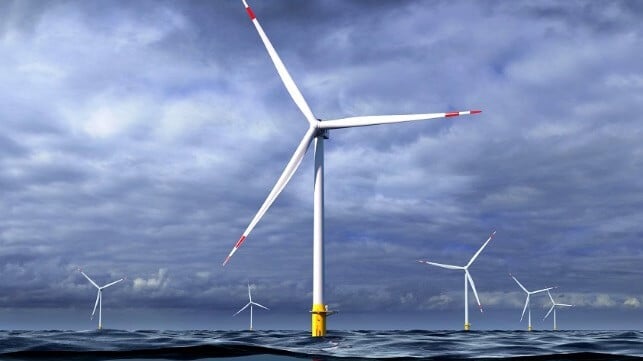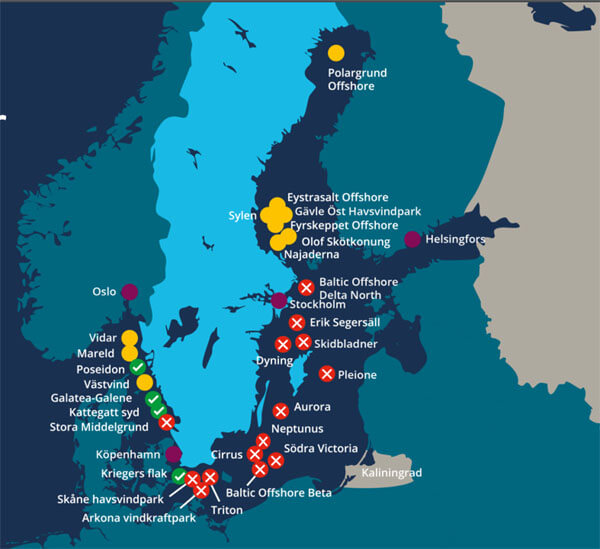Sweden Cites “Defense Concerns” Blocking Plans for 13 Baltic Wind Farms

The Swedish government announced that after reviewing all considerations including defense issues it would not proceed with permits for 13 proposed wind farms planned for the Baltic outside of Sweden’s territorial waters. The government said defense considerations had won out in the review while it also approved one offshore wind farm plan and emphasized that it still wants to develop wind and solar energy.
The government said during a press event on Monday in Stockholm that it had determined the projects could not be permitted because of the impact that they would have on defense. Pal Jonson, Defense Minister, said the Armed Forces had provided documentation that showed the wind farm would delay the country’s ability to react to incoming missiles and the activity of submarines.
Sweden increased its defense considerations after the Russian invasion of Ukraine and the general heightened security anxieties in the Baltic region. It was highlighted that both Sweden and Finland joined NATO in response to safety concerns and increased tensions with Russia.

Map shows the locations in the Baltic rejected due to security concerns (Swedish government)
“In these current cases, however, the defense interest has weighted the most,” said Romina Pourmokhtari, Climate and Environment Minister.
Among the companies proposing the offshore projects were Sweden’s OX2, Germany’s RWE, and Norway’s Statkraft. The decision is also seen as a setback to Sweden’s midterm plans for electrification and sustainability. The country has called for doubling its electric power supply which could have largely been achieved with the 13 projects which would have had a combined capacity of 140 terawatt-hours. Experts also highlight that the Baltic is a primate location for wind farms due to its relatively shallow seabed and consistent wind speeds.
The Swedish government emphasized that the projects needed to be considered in the broader scope but that it remains committed to wind and solar energy. While rejecting the 13 projects based on location, they granted permission for the Poseidon project which would be on the western coast in the southern Skagerrak. It became the first floating wind project to gain approval with government officials saying it would put Sweden at the forefront of floating wind. Vattenfall has invested in developing the project.
“It opens the door to developing additional offshore wind farms at greater ocean depth than has been previously possible,” they said announcing the approval.
Poseidon would consist of up to 81 floating turbines standing at up to 340 meters (over 1,100 feet) and have a potential for 5.5 TWh per year. The permission calls for the wind farm to be completed within 10 years and to have a total 40-year lifespan. The minister said it could tentatively start construction by 2029 and possibly be completed by around 2031.

that matters most
Get the latest maritime news delivered to your inbox daily.
It requires further review and permissions including for underwater cabling and the interconnect to the main power grid. The developer will also have to incorporate considerations for commercial fishing as well as marine mammals, bats, and birds.
Poseidon is the third offshore wind project to gain approval from the current government. They noted that 10 additional proposals are currently being reviewed. In addition, they are directing the state authorities to update the rules and technical specifications for intermittent power generation, including wind and solar. They are calling for additional consideration on how these forms of power generation can be supplemented or designed to contribute to power needs. The report is due at the end of 2025.
